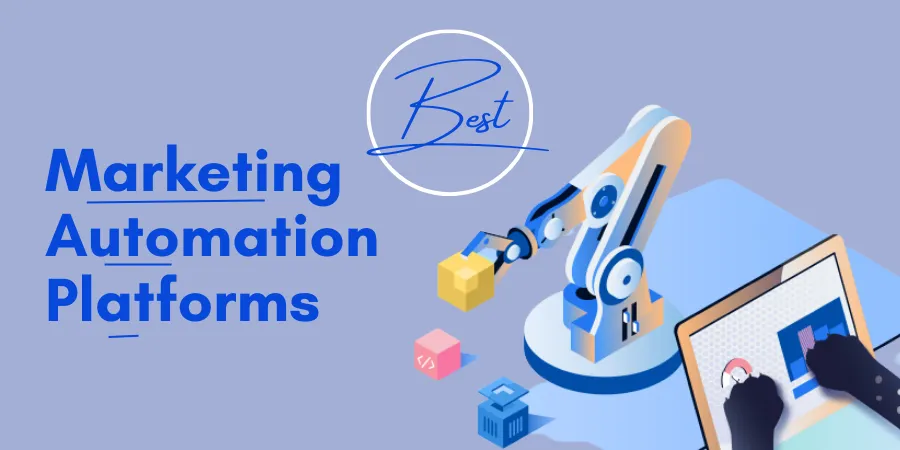11+ Best Marketing Automation Platforms [Review]
Marketing automation is a powerful tool that can help businesses streamline their marketing efforts and increase efficiency.
With the right marketing automation platform, businesses can automate repetitive tasks, personalize customer experiences, and analyze data to make informed decisions about their marketing strategy.
In this guide, we will review some of the best marketing automation platforms available and discuss the benefits of using them.
What Is The Best Marketing Automation Platform?
Here are my top picks of the best marketing automation platforms.
1. GetResponse
GetResponse is a marketing automation platform that offers a range of features, including email marketing, landing page creation, and webinars.
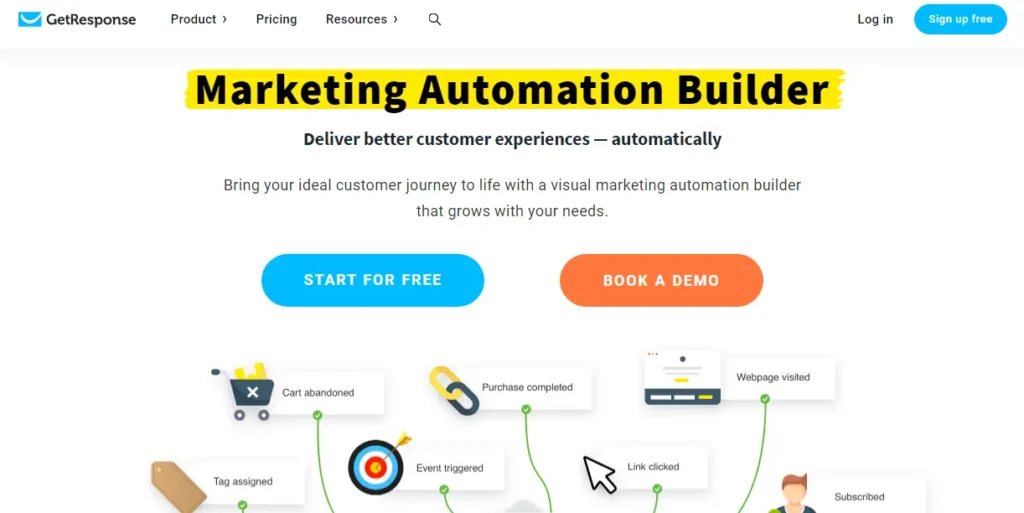
It is known for its user-friendly interface and is suitable for businesses of all sizes.
Pros
- User-friendly interface.
- Wide range of features.
- Suitable for businesses of all sizes.
Cons
- Limited automation capabilities.
- No CRM integration.
2. ActiveCampaign
ActiveCampaign is a marketing automation platform that offers a range of features, including email marketing, CRM, and marketing automation.
It is known for its user-friendly interface and robust automation capabilities.
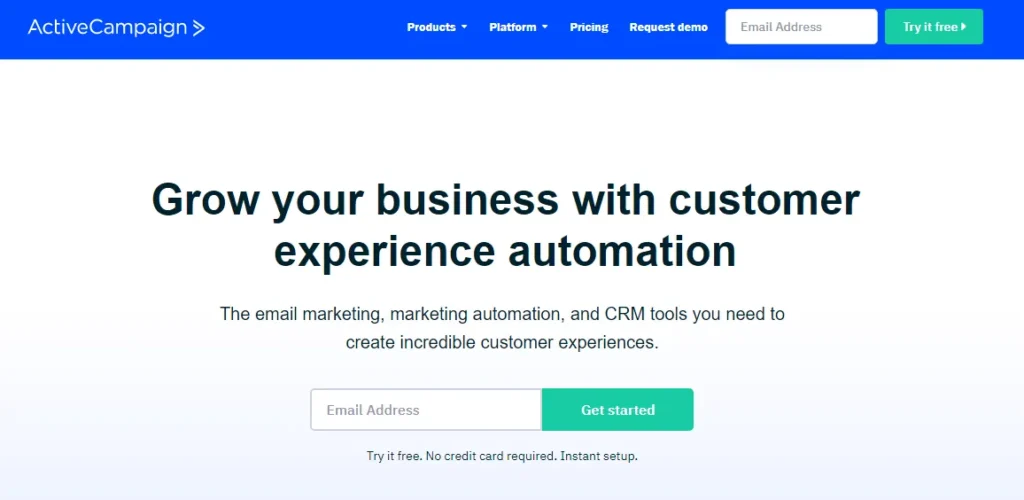
ActiveCampaign offers a range of pricing options, making it suitable for businesses of all sizes.
Pros
- User-friendly interface.
- Robust automation capabilities.
- Flexible pricing options.
Cons
- Limited integrations with other business tools.
- Some features may be unnecessary for smaller businesses.
3. HubSpot
HubSpot is a comprehensive marketing automation platform that offers a wide range of features, including email marketing, social media management, and CRM.
One of the key benefits of HubSpot is its integration with other business tools, such as sales and customer service software.
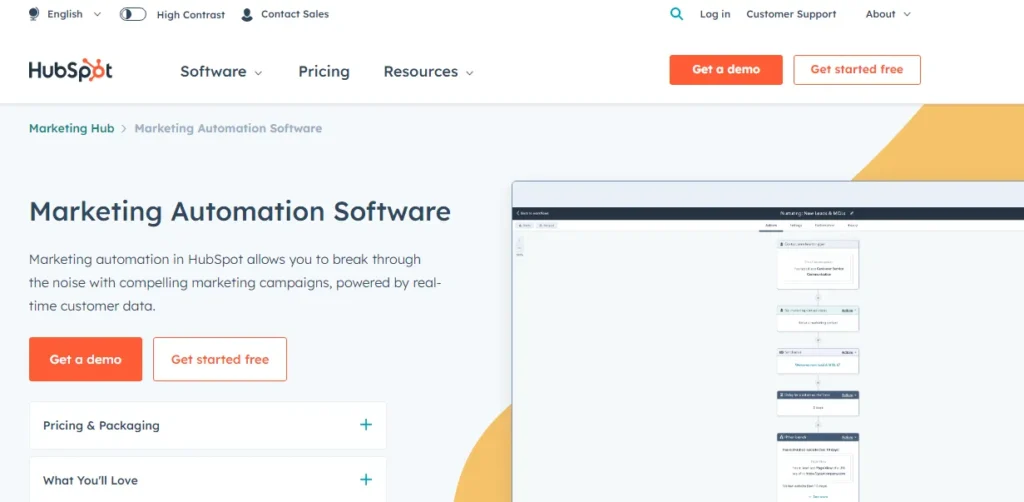
HubSpot also offers a range of pricing options, making it suitable for businesses of all sizes.
Pros
- Wide range of features.
- Integration with other business tools.
- Flexible pricing options.
Cons
- Steep learning curve.
- Some features may be unnecessary for smaller businesses.
4. Marketo by Adobe
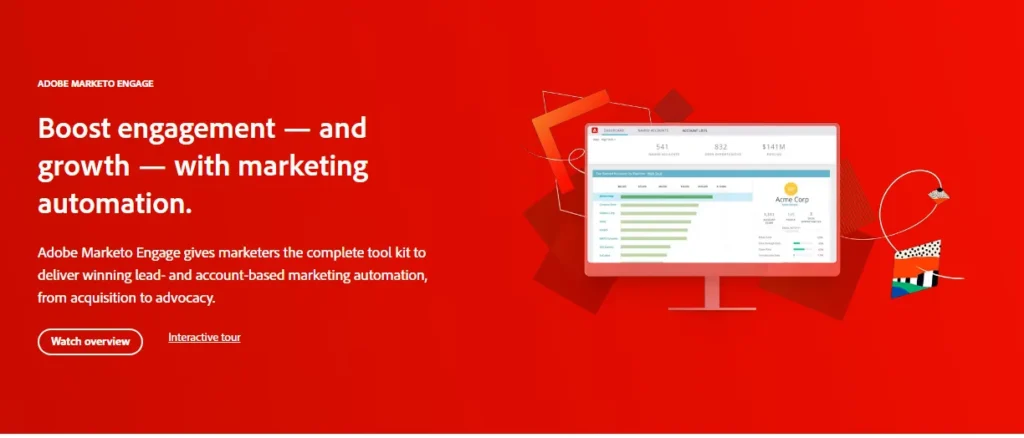
Marketo is another popular marketing automation platform that offers a range of features, including email marketing, lead management, and social media management.
It is designed for mid-sized to large businesses and offers a number of advanced features, such as A/B testing and predictive analytics.
Pros
- Advanced features for larger businesses.
- Strong focus on lead management.
Cons
- More expensive than some other options.
- May be overkill for smaller businesses.
5. Pardot by Salesforce
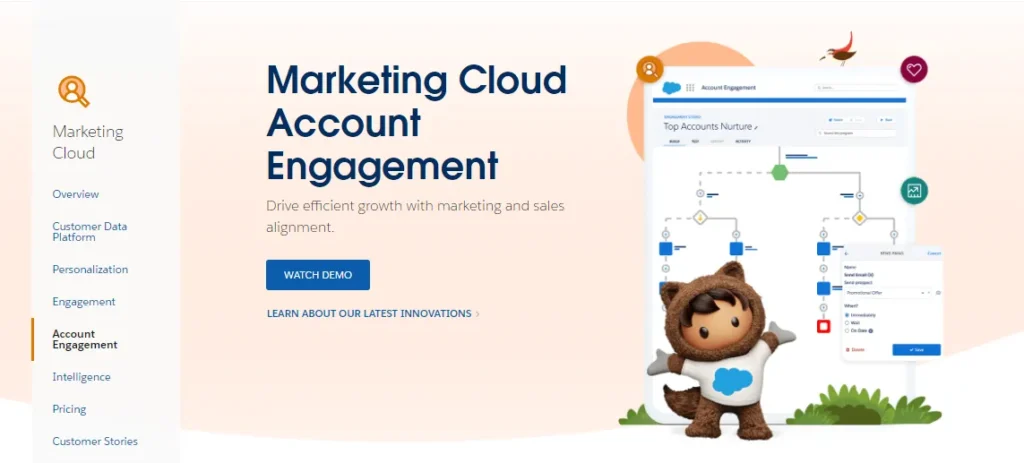
Pardot is a marketing automation platform that is geared towards B2B businesses. It offers a range of features, including lead nurturing, email marketing, and lead scoring.
Pardot is known for its integration with Salesforce and its robust lead management capabilities.
Pros
- Strong focus on B2B lead management.
- Integration with Salesforce.
Cons
- More expensive than some other options.
- Limited social media management capabilities.
6. Infusionsoft -> Keap
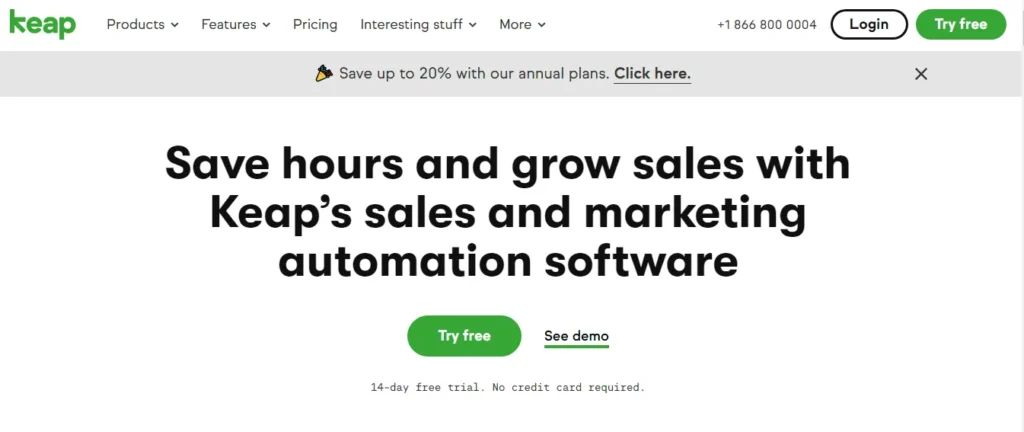
Infusionsoft is a comprehensive marketing automation platform that offers a range of features, including email marketing, lead management, and CRM.
It is designed for small businesses and offers a number of advanced features, such as predictive analytics and sales forecasting.
Pros
- Advanced features for small businesses.
- Comprehensive lead management capabilities.
Cons
- More expensive than some other options.
- Steep learning curve.
7. MailChimp
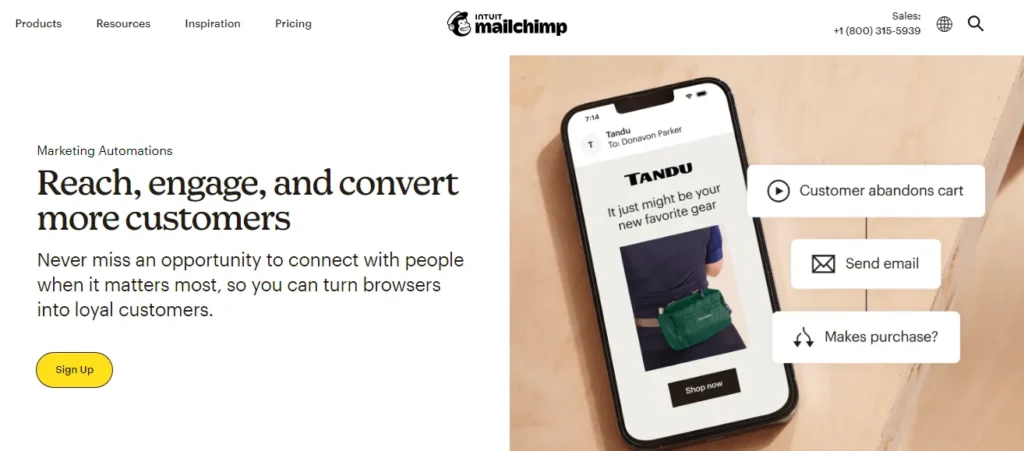
MailChimp is a popular marketing automation platform that offers a range of features, including email marketing, marketing automation, and social media management.
It is known for its user-friendly interface and is suitable for businesses of all sizes.
Pros
- User-friendly interface.
- Wide range of features.
- Suitable for businesses of all sizes.
Cons
- Limited automation capabilities.
- No CRM integration.
8. Zapier
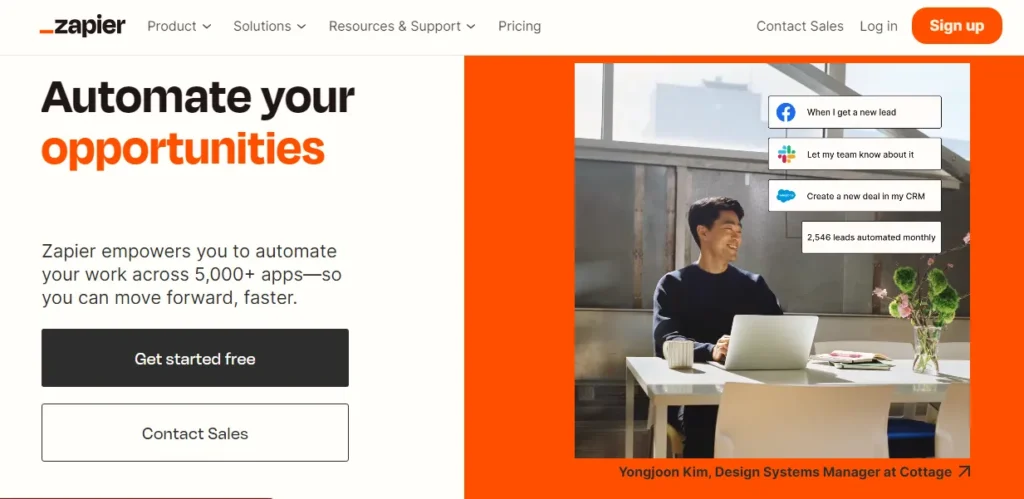
Zapier is a marketing automation platform that allows businesses to automate tasks by connecting different web applications.
It offers a range of integrations and is suitable for businesses of all sizes.
Pros
- Wide range of integrations.
- Suitable for businesses of all sizes.
Cons
- Limited automation capabilities.
- No CRM integration.
9. Eloqua

Eloqua is a marketing automation platform that offers a range of features, including email marketing, lead management, and marketing automation.
It is designed for large enterprises and offers a number of advanced features, such as predictive analytics and machine learning.
Pros
- Advanced features for large enterprises.
- Comprehensive lead management capabilities.
Cons
- More expensive than some other options.
- Complex interface.
10. Customer.io
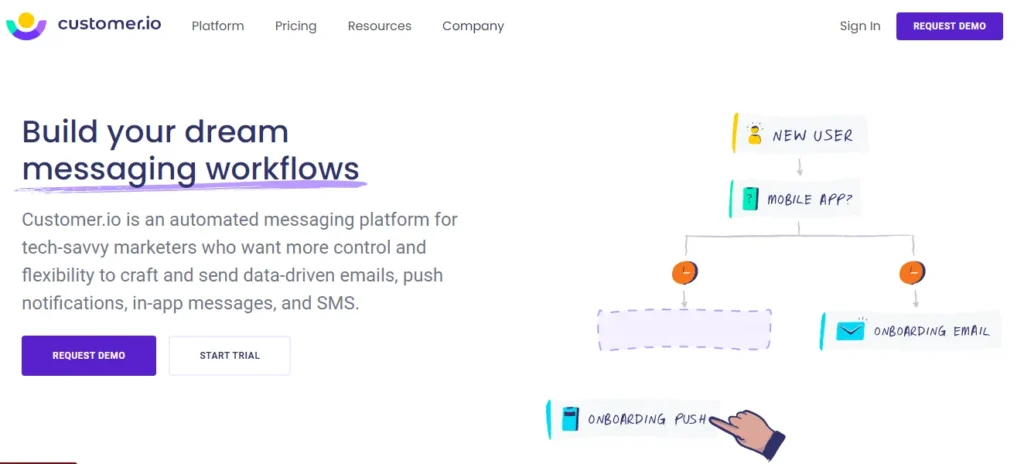
Customer.io is a marketing automation platform that allows businesses to send personalized email and SMS campaigns based on customer behavior.
It is suitable for businesses of all sizes and offers a range of integrations.
Pros
- Personalized messaging based on customer behavior.
- Wide range of integrations.
- Suitable for businesses of all sizes.
Cons
- Limited automation capabilities.
- No CRM integration.
11. Constant Contact
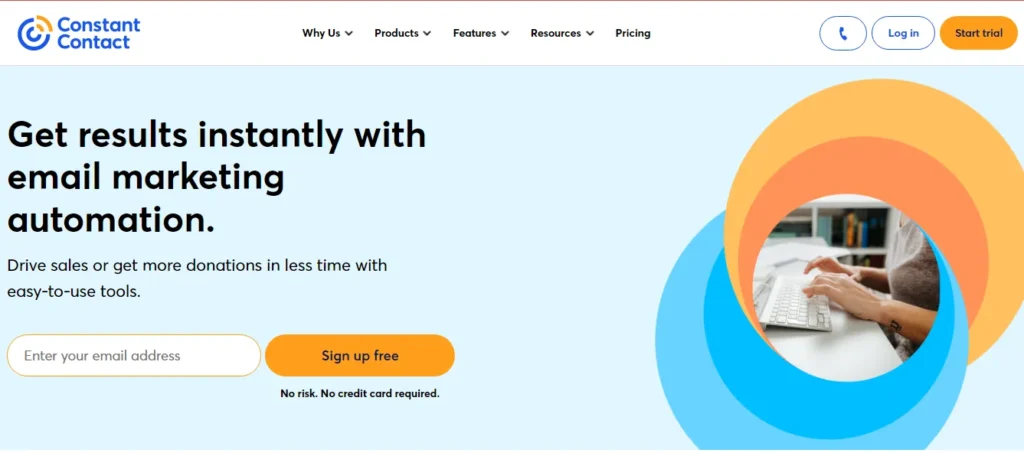
Constant Contact is a marketing automation platform that offers a range of features, including email marketing, event management, and social media management.
It is known for its user-friendly interface and is suitable for small businesses.
Pros
- User-friendly interface.
- Wide range of features.
- Suitable for small businesses.
Cons
- Limited automation capabilities.
- No CRM integration.
12. Userfox
Userfox is a marketing automation platform that allows businesses to send targeted email campaigns based on user behavior.
It offers a range of integrations and is suitable for businesses of all sizes.
Pros
- Targeted email campaigns based on user behavior.
- Wide range of integrations.
- Suitable for businesses of all sizes.
Cons
- Limited automation capabilities.
- No CRM integration.
Getting Started with Marketing Automation Platforms
To get started with a marketing automation platform, businesses should first assess their needs and goals.
This will help determine which platform is the best fit for the business.
Some factors to consider include the size of the business, the type of industry, the marketing budget, and the specific features needed.
Once a platform has been chosen, businesses can start by setting up their account and integrating it with any necessary tools, such as email marketing or CRM software.
From there, businesses can start building their marketing automation campaigns and setting up automation rules.
It’s important to test and optimize campaigns to ensure they are effective and provide a positive customer experience.
Benefits of Using Marketing Automation Platforms
Time-saving
Marketing automation helps businesses save time by automating repetitive tasks, such as sending email campaigns, posting social media updates, and generating reports. This allows marketing teams to focus on more important tasks, such as strategizing and analyzing data.
Personalization
Marketing automation platforms allow businesses to personalize customer experiences by segmenting their audience and tailoring marketing campaigns to specific groups. This can increase customer engagement and improve the chances of converting leads into customers.
Data analysis
Marketing automation platforms provide businesses with valuable data on their marketing efforts, such as email open rates, click-through rates, and conversion rates. This data can help businesses understand what’s working and what’s not, and make informed decisions about their marketing strategy.
Improved customer experience
By automating marketing efforts, businesses can provide a more consistent and personalized experience for their customers. This can help build trust and loyalty, leading to increased customer retention and sales.
Frequently Asked Questions about Marketing Automation Platforms
The cost of a marketing automation platform will vary depending on the specific platform and the features needed. Some platforms, such as HubSpot and ActiveCampaign, offer flexible pricing options with different plans for businesses of different sizes. Other platforms, such as Marketo and Pardot, tend to be more expensive and may be more suitable for larger businesses.
Yes, marketing automation platforms can be used by businesses of all sizes. Many platforms offer different pricing options and features to accommodate the needs of small businesses. It’s important for small businesses to assess their needs and choose a platform that is the right fit for their business.
Yes, many marketing automation platforms offer integration with other business tools, such as CRM software, email marketing, and social media management. This can help businesses streamline their marketing efforts and improve efficiency.
The time it takes to set up a marketing automation platform will depend on the specific platform and the complexity of the campaigns being set up. In general, it may take several weeks or even months to fully set up and optimize a marketing automation platform.
Conclusion
I hope the information provided above is helpful in understanding the various marketing automation platforms available. It’s important for businesses to assess their needs and choose a platform that is the right fit for their business.
Some factors to consider include the size of the business, the type of industry, the marketing budget, and the specific features needed.
In addition to the features and integrations offered by each platform, businesses should also consider the user-friendliness and overall ease of use of the platform.
A platform that is too complex or difficult to use can be frustrating for marketing teams and may result in reduced efficiency and effectiveness.
Once a marketing automation platform has been chosen and set up, businesses should test and optimize their campaigns to ensure they are effective and provide a positive customer experience.
This may involve A/B testing, analyzing data, and making adjustments to campaigns as needed.
It’s also important for businesses to regularly review and assess their marketing automation strategy to ensure it is meeting their needs and helping them achieve their marketing goals.
By staying up-to-date with industry trends and best practices, businesses can continually improve their marketing efforts and drive success.

